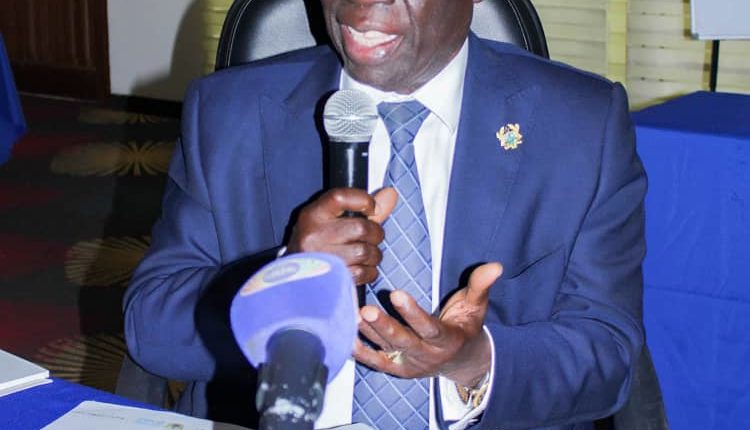The Senior Minister, Yaw Osafo-Maafo, has said that the introduction of ‘Ghana Beyond Aid’, by the Akufo-Addo government has been overly useful to the citizenry as it has helped inculcate and educate citizens on the need to resist corruption in all forms.
Speaking on the Ghana Beyond Aid Charter and Strategy document with Faith Based Organisations (FBOs) at the Alisa Hotel last Tuesday, Mr. Maafo said, “To get to a Ghana Beyond Aid, we will have to harness effectively our own resources, and deploy them creatively and efficiently for rapid economic and social transformation.”
He hinted that, to achieve the desired results, there will be a 17-member Ghana Beyond Aid Council to be chaired by the President of the Republic, and would comprise a representative of the largest Opposition Party in Parliament, head of the Trades Union Congress, the Head of the Employers Association, among others.
The Senior Minister also disclosed that, there shall be a Ghana Beyond Aid Secretariat whose responsibility would be to develop parameters of the various indicators in order to track progress.
“The Secretariat should be financed jointly by Government, Labour and the Private Sector. The staff of the Secretariat will include persons seconded from the National Development Planning Commission, the Ghana Statistical Service and other experts,” he said.
According to him, “The NDPC is a constitutional creation with the mandate of development planning. There is the need for strong functional linkages between national development planning and the Ghana Beyond Aid Secretariat.”
Ghana Beyond Aid Motive
Osafo-Maafo said the concept was not a development plan, but a call for a paradigm shift through attitudinal and mindset change by all citizens in the country in terms of how to develop the nation.
He, however, rejected the notion that Ghana was rejecting aid, saying “we should determine what the aid should be used for in order to benefit our people.” He also stressed that the agenda was non-partisan and, and called on all Ghanaians to own it.
The agenda, he noted, would hinge on a-ten-point reform strategy which would look at macroeconomic stability, higher public resource mobilization, greater efficiency in the use of public resources, anti-corruption, improved public infrastructure and land accessibility, and creating a robust financial sector for higher domestic private savings.
The stakeholder engagement saw representatives from the Ghana Christian Council, Ghana Catholic Bishop Association, NAGRAT, Office of the Chief Imam among others.


Comments are closed.